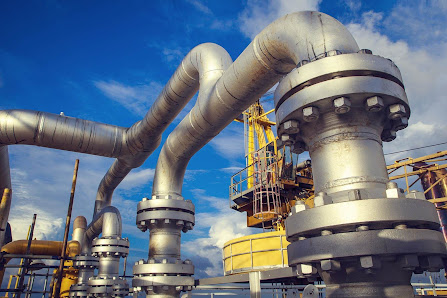Oil and Gas Chemicals: Pioneering Innovations Driving Energy Efficiency and Environmental Sustainability
Oil and gas chemicals play a critical role in the exploration, production, refining, and transportation processes within the energy sector. These specialized chemicals are designed to optimize the efficiency of oil and gas operations while ensuring the safety and environmental compliance of the industry. In this article, we will explore the significance of oil and gas chemicals, their key applications, and the benefits they offer to the oil and gas industry.
Exploration and Production Chemicals
During the exploration and production phase, oil and gas companies encounter various challenges such as wellbore instability, reservoir damage, and corrosion. Oil and gas chemicals, including drilling fluids, corrosion inhibitors, and scale inhibitors, are used to mitigate these challenges and enhance the overall efficiency of drilling and production operations. These chemicals help maintain well integrity, prevent formation damage, and ensure the smooth extraction of hydrocarbons.
Refining and Petrochemicals
The refining process involves converting crude oil into valuable petroleum products such as gasoline, diesel, and jet fuel. Oil and gas chemicals are crucial in refining operations to improve product quality, increase yields, and reduce energy consumption. Catalysts, desulfurization agents, and anti-fouling chemicals are some of the key chemicals used in refining and petrochemical processes.
Gas Treatment Chemicals
Natural gas often contains impurities like sulfur compounds and moisture, which need to be removed before transportation and utilization. Gas treatment chemicals, such as glycol dehydration agents and amine-based scavengers, play a vital role in purifying natural gas and making it suitable for distribution through pipelines or for further processing into liquefied natural gas (LNG).
Enhanced Oil Recovery (EOR) Chemicals
As oil fields mature, the natural reservoir pressure decreases, making it challenging to recover all the oil. Enhanced Oil Recovery techniques are employed to boost oil production, and specialized chemicals like surfactants, polymers, and alkalis are utilized to improve oil mobility and sweep efficiency within the reservoir, resulting in increased oil recovery rates.
Benefits of Oil and Gas Chemicals
Increased Production Efficiency: By optimizing drilling operations, preventing corrosion, and improving refinery processes, oil and gas chemicals lead to enhanced production efficiency, reducing operational costs and maximizing hydrocarbon yields.
Environmental and Safety Compliance: Oil and gas chemicals are formulated to meet stringent environmental regulations, reducing the environmental impact of oil and gas activities while ensuring the safety of personnel and equipment.
Cost-Effectiveness: The use of chemicals to optimize operations can result in significant cost savings by reducing downtime, minimizing maintenance, and maximizing resource utilization.
Sustainability: Some oil and gas chemicals are designed to be more eco-friendly, promoting sustainability initiatives within the industry and aligning with global efforts to reduce carbon footprints.
Conclusion
Oil and gas chemicals are indispensable tools in the energy sector, driving efficiency, safety, and environmental responsibility in all stages of the oil and gas value chain. As the industry continues to evolve, the development of innovative and environmentally friendly chemicals will remain a priority, enabling the oil and gas sector to meet the world's growing energy demands responsibly and sustainably.



.png)
Comments
Post a Comment